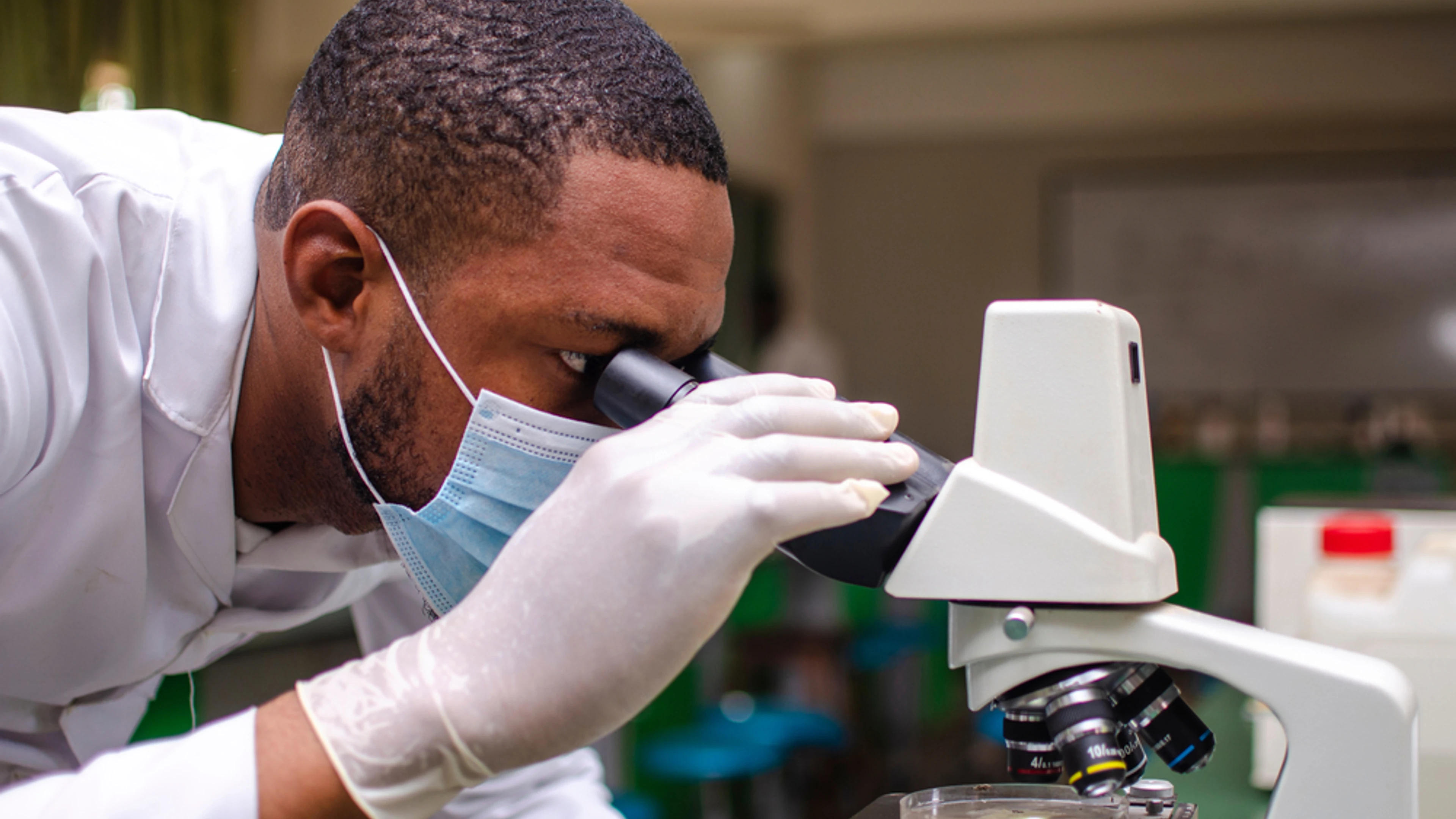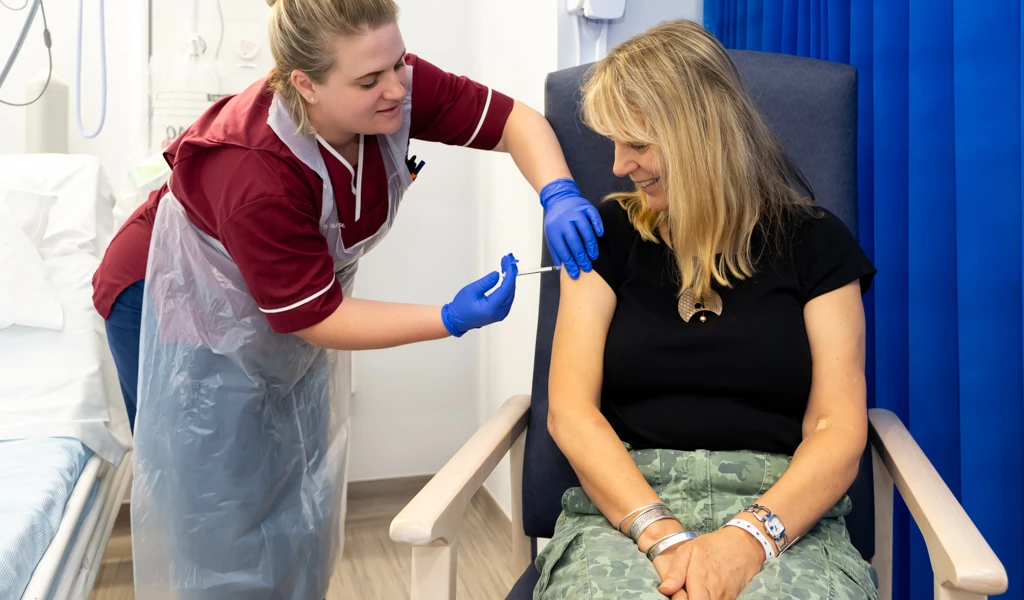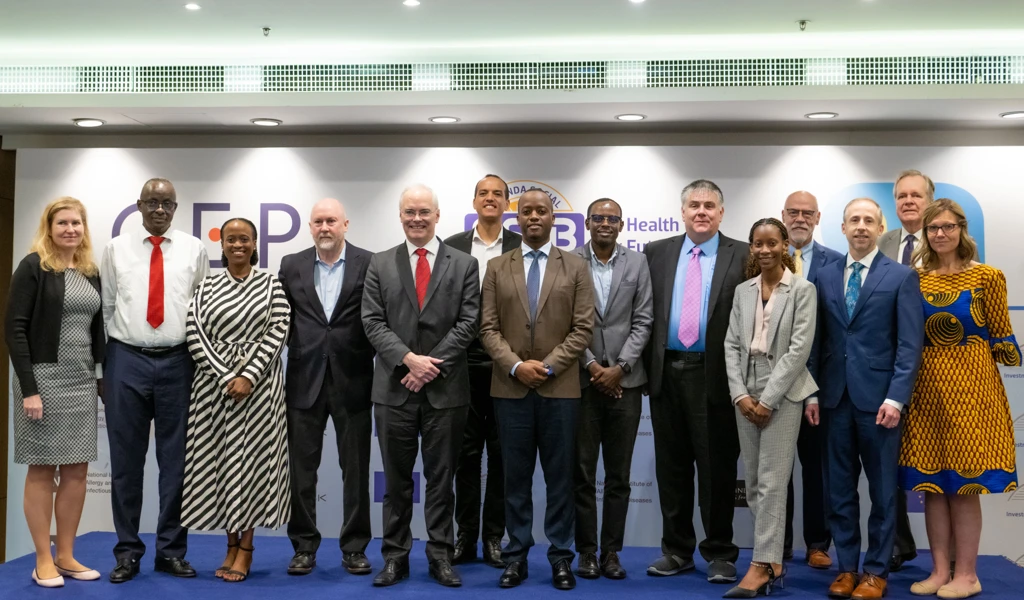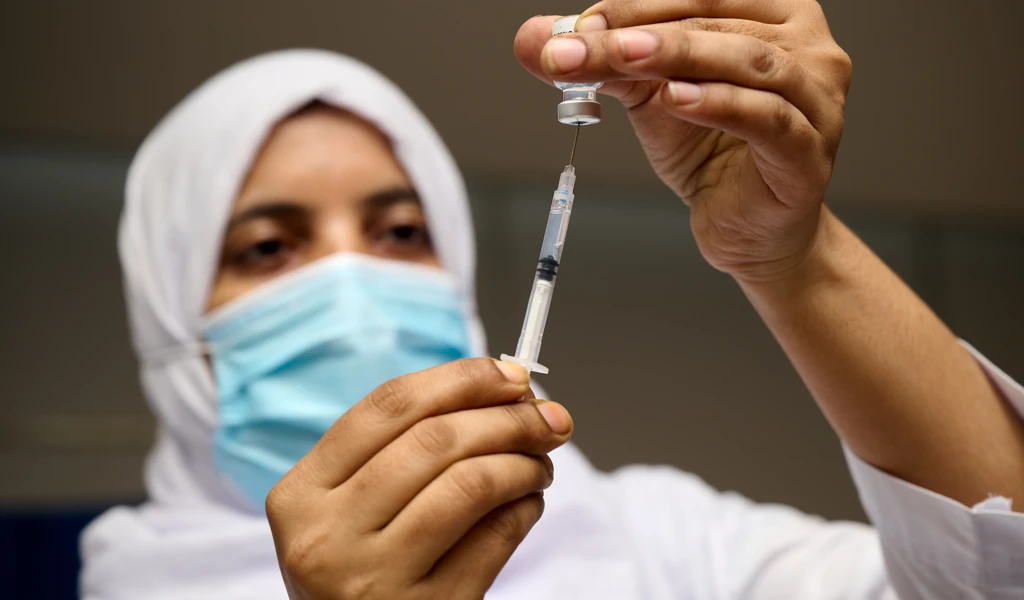Rift Valley fever vaccines to advance with new $50 million CEPI and EU funding call

CEPI today launches second phase of funding to advance innovative Rift Valley fever vaccine programmes into clinical trials.
Up to USD 50m (EUR 50m) will be provided to vaccine projects, with support from the European Union's Horizon Europe programme.
The potentially deadly Rift Valley fever spreads to humans through the bites of infected mosquitoes, and when interacting with infected livestock, like cattle and sheep. No vaccines are currently approved for human use, although climate change could increase the severity and frequency of outbreaks.
16 September 2022, Oslo, Norway and Brussels, Belgium — The Coalition for Epidemic Preparedness Innovations (CEPI) has launched its second phase of funding to advance the development of innovative vaccine programmes against the mosquito-borne viral disease, Rift Valley fever. Including USD 35 million (EUR 35 million) financial support provided by the European Union Horizon Europe programme, up to USD 50 million (EUR 50 million) in total will be made available by CEPI to support promising Rift Valley fever vaccine candidates through Phase I and II clinical trials in endemic areas.
A climate-driven disease with epidemic potential
First identified in 1931 in the Rift Valley of Kenya, Rift Valley fever virus affects both animals (like cattle, sheep, and goat) and humans in Africa and parts of the Arabian peninsula. It is considered a public health and agricultural threat, disproportionately affecting vulnerable pastoral communities in these regions, as severe outbreaks in animals can result in large-scale livestock losses, which, in turn, result in serious economic losses.
The virus spreads to humans from contact with infected animals or from the bites of infected mosquitoes, causing mild to life-threatening disease. Symptoms can include fever, muscle, joint pain, and headache, with 1-2% percent of patients developing a much more severe form of the disease which can result in haemorrhagic fever. Approximately half of all individuals with the haemorrhagic form lose their lives to the virus. Rift Valley fever infection can also result in long-term debilitating health consequences for some survivors, like blindness.
Since its first identification, Rift Valley fever outbreaks have typically occurred in 4—15-year climatic cycles, linked to periods of rainfall surges creating more breeding sites for infected mosquitoes. During the last two decades, the virus has continued to expand its range across Africa and into new regions within endemic countries. There is concern that further climate change and extreme weather events could create the necessary conditions to expand the number and size of regions affected.
Rift Valley fever is therefore viewed as a prime candidate for the One Health approach to disease control (an integrated movement pushing for understanding and managing animal, human and environmental impact of disease and other global issues) since human illness is seen after animal outbreaks, which, in turn, are affected by climatic conditions. Understanding the interplay between these factors and their affect on Rift Valley fever are crucial to help control outbreaks in the future.
Quest to develop human vaccines
Despite veterinary vaccines being available, no vaccines are currently approved for human use. With climate change, population movement, and evolving human-wildlife interactions increasing the likelihood of infections becoming more frequent and widespread in humans, CEPI has identified Rift Valley fever as one of its priority pathogens. It also features on the World Health Organization (WHO) R&D Blueprint list as a pathogen with epidemic potential in urgent need of R&D investment.
CEPI has, to date, supported two programmes with Wageningen University and Colorado State University to advance human Rift Valley fever vaccines. The investments were made as part of the first phase of the Rift Valley fever funding call, launched in 2019, with support from the European Union Horizon 2020 Programme to advance and diversify the Rift Valley fever vaccine pipeline. Both vaccine candidates are in early phases of development, with Wageningen University recently announcing that its vaccine candidate has entered Phase I clinical testing. CEPI's ultimate goal, as part of its $3.5bn pandemic preparedness plan, is to advance Rift Valley fever vaccines towards late-stage clinical trials and possible licensure, alongside vaccines for its other priority pathogens.
The current rapid spread of COVID-19, monkeypox, and other potentially deadly pathogens shows just how important it is to invest early in disease research so that we can be better prepared for the next infectious threat - whenever or wherever it may strike.
Rift Valley fever regularly leads to serious outbreaks and, with continuing climate change, could well spread in its sphere of influence. If we fail to act now, there is a risk that we could see more frequent and deadly Rift Valley fever outbreaks, with serious public health and socioeconomic consequences. Advancing globally accessible vaccines against Rift Valley fever for human use, is an essential step within the One Health framework, to ensure local pastoral communities affected by the disease, and the world, are better protected for the future.
To do this, we must consider the animal, human, and environmental factors that can impact the number and severity of disease outbreaks. We look forward to advancing our work with the European Union and Rift Valley fever vaccine development partners to make this happen.
The EU has been at the forefront of supporting research and innovation and coordinating global research efforts to prevent and tackle health threats. In collaboration with CEPI, today we are stepping up our efforts to meet the challenges represented by one of these threats, which is Rift Valley fever.
Rift Valley fever illustrates very well how the health of humans, animals, and our ecosystems are closely linked and inter-dependent, and why we need a One Health approach when tackling emerging infectious diseases. By supporting CEPI and funding new research into a Rift Valley fever vaccine we continue our work to fight these diseases, as well as prepare for future outbreaks.
The new funding award, announced today, is open to applications worldwide from both existing CEPI Rift Valley fever partners, as well as vaccine developers who are not currently partnered with CEPI.
Vaccine developers will be asked to complete their Phase I/II clinical testing to assess safety and immunogenicity of their vaccine candidates in countries affected by Rift Valley fever. Where possible, CEPI will facilitate matching up vaccine developers to local trial sites in affected countries.
Applicants will also be asked to develop plans to scale-up manufacture of their vaccine candidate, as well as plans for engagement with regulatory authorities both for the clinical trial and potential future clinical development and licensure possibilities.
Projects will likely take 3-4 years to complete.
In line with CEPI's commitment to achieving equitable access to its programmes, including vaccines, platforms, data, results and materials, any developed Rift Valley fever vaccine must be made first available to populations when and where they are needed in the context of an outbreak or to curtail an epidemic, regardless of ability to pay.
Ends
Notes to Editors
About Rift Valley fever
Rift Valley fever is an acute viral haemorrhagic disease caused by the Rift Valley fever virus, an RNA virus belonging to the Phlebovirus genus and Phenuiviridae family. The virus is transmitted by mosquitoes (Aedes, Culex, Anopheles, and Mansonia spp.) and blood feeding flies and most commonly affects domesticated animals (such as cattle, sheep, goats, and camels) but can also cause illness in people.
Rift Valley fever affects trade resulting in significant economic losses due to mortality and abortion among Rift Valley fever-infected livestock in the regions where outbreaks occur (e.g. ~$60M loss in East Africa during the 2006-2007 outbreak, ~$17.8M loss in South Africa, during the 2010 outbreak).
The most serious outbreaks recorded occurred in Egypt in 1977 during which 20,000 to 40,000 people were infected and 600 people died. In 1997, another major outbreak occurred in East Africa, during which 90,000 people were infected and 500 people died. Last month, outbreaks occurred in Mauritania and Uganda.
There is a Rift Valley fever endemic cycle and periods of climate-driven epidemics, particularly seen in East Africa. Past outbreaks in this region have been closely associated with cycles of abnormally heavy rainfall that occur during the warm phase of the El Niño/Southern Oscillation (ENSO) phenomenon. This results to floods and increased vegetation cover favoring high vector density and species diversity.
Find out more about Rift Valley fever and vaccine development on the CEPI website.
More information on the Call
Further information on the Call and details on how to apply can be found here.
The deadline is 17 November 2022. Vaccine developers are asked to let CEPI know they are planning to make an application by 14 October 2022.
In addition to supporting the clinical trials, CEPI may also support epidemiology studies to identify suitable clinical sites, develop Rift Valley fever prediction models as well as other studies, such as research identifying biomarkers for Rift Valley fever infection (known as correlates of protection).
The first phase of the Rift Valley fever funding call was launched in 2019. The second phase of the Rift Valley vaccine funding call, launched today, was delayed as a result of the COVID-19 pandemic. A review of CEPI's portfolio was conducted by members of the CEPI Leadership Team and CEPI Scientific Advisory Committee in November 2021 to assess the progress of CEPI's vaccine programmes launched pre-COVID-19 pandemic and made recommendations on CEPI's next steps. Attendees recommended continuing to invest in Rift Valley Fever vaccine development through clinical phases within a One Health framework.
About CEPI
CEPI is an innovative partnership between public, private, philanthropic, and civil organisations, launched at Davos in 2017, to develop vaccines against future epidemics. Prior to COVID-19, CEPI's work focused on developing vaccines against Ebola virus, Lassa virus, Middle East Respiratory Syndrome coronavirus, Nipah virus, Rift Valley Fever virus and Chikungunya virus — it has over 20 vaccine candidates against these pathogens in development. CEPI has also invested in new platform technologies for rapid vaccine development against unknown pathogens (Disease X).
During the current pandemic, CEPI initiated multiple programmes to develop vaccines against SARS-CoV-2 and its variants with a focus on speed, scale and access. These programmes leverage the rapid response platforms developed by CEPI's partners prior to the emergence of COVID-19 as well as new collaborations. The aim is to advance clinical development of a diverse portfolio of safe and effective COVID-19 candidates and to enable fair allocation to these vaccines worldwide through COVAX.
CEPI's 5-year plan lays out a $3.5 billion roadmap to compress vaccine development timelines to 100 days, develop a universal vaccine against COVID-19 and other Betacoronaviruses, and create a "library" of vaccine candidates for use against known and unknown pathogens. The plan is available at endpandemics.cepi.net.
Follow our news page for the latest updates. Follow us @CEPIvaccines, @DrRHatchett, and LinkedIn.
About the European Union
This is the third jointly funded call for proposals resulting from the collaboration between CEPI and the EU's research framework programmes. CEPI received EUR36 million under Horizon 2020 in the context of the development of vaccines for Chikungunya and for Rift Valley fever viruses, as well as in support of an Ebola vaccine trial in the Democratic Republic of Congo. CEPI also received a Horizon 2020 grant of EUR 100 million to support its efforts for the development of COVID-19 vaccines. The bulk of this grant is being used for CEPI's partnership with SK Bioscience for the development of a variant-proof vaccine against SARS-CoV-2 and its variants.
The EUR 35 million in funding for CEPI for this Rift Valley fever call have been provided through the RIFTVAX project (Grant agreement number 101081290) from the EU's Horizon Europe programme. As described under the Horizon Europe Health Work Programme 2021-2022, another EUR 35 million will be awarded to CEPI during the course of 2022 for the further development of vaccines against emerging infectious diseases.
Horizon Europe — #HorizonEU — is the European Union's flagship Research and Innovation programme, part of the EU-long-term Multiannual Financial Framework (MFF) with a budget of EUR 95,5bn to spend over a seven-year period (2021-2027).
Under Horizon Europe, health research will be supported with the aim to find new ways to keep people healthy, prevent diseases, develop better diagnostics and more effective therapies, use personalised medicine approaches to improve healthcare and wellbeing, and take up innovative health technologies, such as digital ones.
Media Contacts
CEPI
Email: [email protected]
Phone: +44 7387 055214
European Commission
Johannes BAHRKE
Email: [email protected]
Phone: +32 229 58615
Marietta GRAMMENOU
Email: [email protected]
Phone: +32 229 83583


